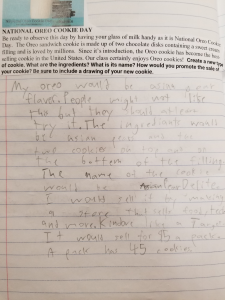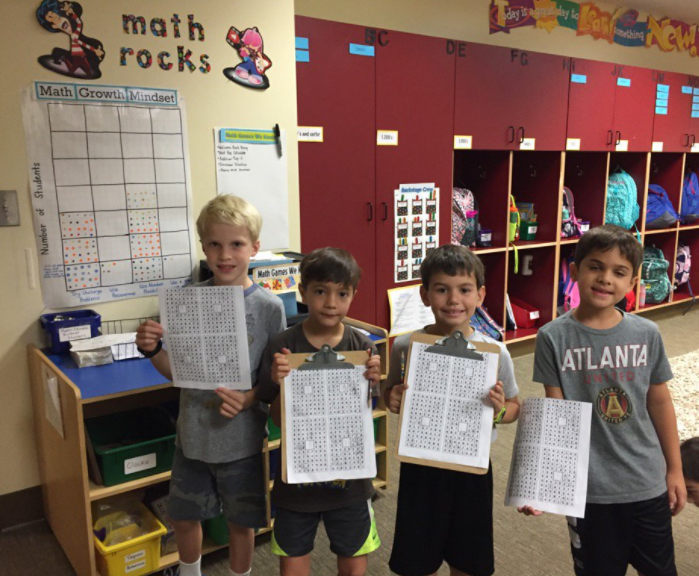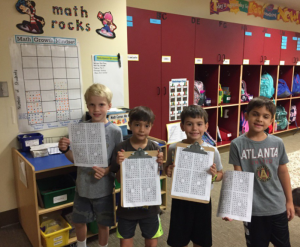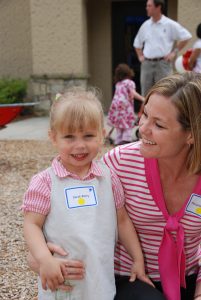I wrote an entirely different blog post for this week, which I’d planned on posting this afternoon, when I got sidetracked by a conversation I had with a parent at school today. This mom came in as our Mystery Reader, and she chose a book called A Letter to My Teacher. It was a sweet story about a teacher who made a difference in a child’s life, and the child’s memories of this special teacher.
After reading, we talked about her book choice. This parent explained to me that she saw it in the bookstore and thought it had such an important message about honoring teachers and the work we do. She went on to say that it brought back memories for her of teachers who inspired her when she was growing up. I told her that I have a few teachers who I remember vividly, and asked her, “Who stands out for you? Who do you remember making a difference in your life?” She explained that she had an 8th grade math teacher who recognized her ability in math and gave her a different, more advanced, textbook to work from. Instead of keeping her on par with the rest of the class, he knew that she was ready for more and gave her the tools to learn more challenging concepts. She credits this teacher as the first to notice her aptitude for math and science, which set her on the path to a successful career as a physician.
Of course, this conversation made me think of the teachers who I remember vividly, who inspired me:
- I remember quite clearly my Kindergarten teacher, Mrs. Karp, who had a bathtub in her classroom that we could sit in. She read us There’s a Carp in the Bathtub at the beginning of the school year, to connect the bathtub to her name. She used to always say, “I love you like crazy!” After moving to a new school (and into her classroom) hallway through the my Kindergarten year, I remember her calm, loving nature, and how she took care of me at a tough time.
-
My sixth grade teacher, Mrs. Collins, read The Witches aloud to our class. For the chapter on how to spot a witch, she dyed her teeth blue, scratched her head often, and complained about her aching feet. If you don’t get the joke, get yourself a copy of the book and read it to your kids— you won’t regret it!
-
My math skills were never strong, but I faltered badly in middle school and landed myself in a ninth grade remedial math class. Ms. Chadwick, my teacher, was patient and soft-spoken. She explained math to me in a way I understood, and brought it down to my level to help me understand the concepts. I was her star pupil that year and learned the pre-algebra skills I had not understood the year before.
-
Mr. Pignone taught law at my high school. I took his class my junior year. He taught me the importance of note-taking and study skills (“Take copious notes!” was his motto). He also took our class on an unforgettable field trip to the county jail, which definitely scared me straight, and I never got in trouble during my high school career.
-
During a student teaching experience in first grade, my cooperating teacher (whose name escapes me at this moment, but who I can picture so clearly), taught me that making your voice softer, instead of louder, works magic in getting children’s attention.
I had forgotten some of these memories until today, and I could certainly list more. Teachers make a difference in their students’ lives (remember Brooke’s Flourish post?), and I know we make a difference with our kids every day.
Which teachers do you remember? Who inspired you?
Learner, Thinker, Writer: Samantha Steinberg serves Trinity School as a Second Grade Teacher






 As I have reflected upon her journey at Trinity School, and I have shed more than a few tears at this loss of childhood, I have been immensely proud of the school that has shaped Sarah, allowing her to stretch and honoring the gifts she brings so joyfully. Thank you, Trinity School, for helping my girl flourish.
As I have reflected upon her journey at Trinity School, and I have shed more than a few tears at this loss of childhood, I have been immensely proud of the school that has shaped Sarah, allowing her to stretch and honoring the gifts she brings so joyfully. Thank you, Trinity School, for helping my girl flourish.